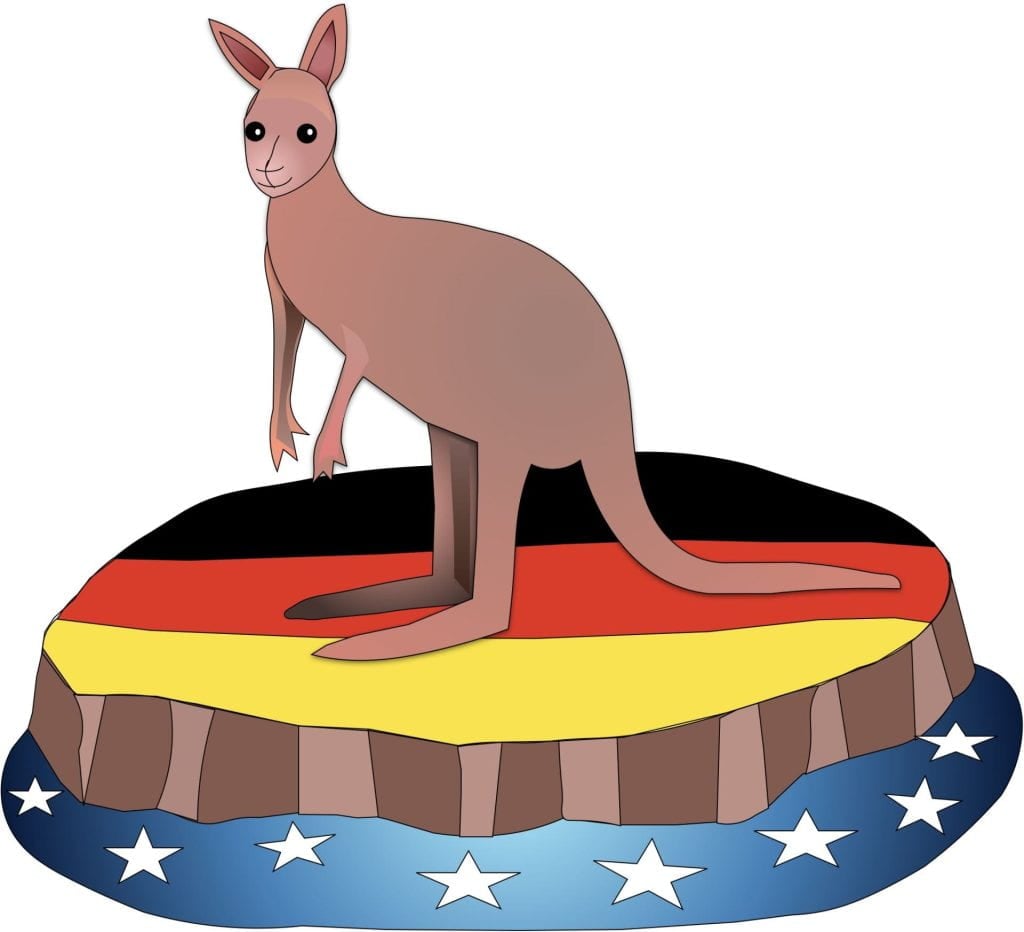
Message from Roslyn Green
This blog provides free resources for learners and teachers of German.
The name “German Island” is based on the German word Sprachinsel, or language island. The term refers to an area where a different language is spoken from the one that dominates the surrounding region.
I originally developed this blog on the Victorian Education Department’s Global2 platform, starting in October 2012. When the Department discontinued the platform at the end of 2020, I transferred the blog to the Edublogs platform with the help and support of Jana Kühn. The people at Edublogs were very helpful in this process.
Since then, I have retired from teaching, but I have completely reconstructed the blog and begun to publish a post each week. The related podcast can be found here on Podbean or by searching for German Island on Apple or your preferred podcast platform.
I live on the land of the Wurundjeri People of the Kulin Nation.
All the very best from Roslyn Green 🦘❤️
Message from Nathaniel Smith
My name is Nathaniel Smith and I am a German and History teacher at Box Hill High School. I am very pleased that Roslyn Green has included me in German Island, and I hope that my contributions benefit students and teachers alike. I am passionate about language learning and linguistics, technology, games and coffee! You can find me on Twitter as @Herr_Smith.
Hallo, ich heiße Nathaniel Smith. Ich bin Lehrer an der Box Hill High School. Vielen Dank an Roslyn Green für die Einladung. Ich freue mich auf die Möglichkeit Blogmitarbeiter zu sein! Ich interessiere mich für Sprachen, Sprachwissenschaft, Technologie, Videospiele und Kaffee! Twitter: @Herr_Smith
July, 2015

Andrea hat mir von deinem Blog erzaehlt!!! Toll! DANKE
Guten Tag!
I love the work you’re doing on your German Island blog. I have used this as an example on The Edublogger to show teachers from around the world what is possible. The Edublogger is Edublogs’ blog about blogging.
Here is the link https://www.theedublogger.com/2017/11/29/global2-my-blogging-story-and-a-showcase/
You may get a few more visitors taking a peek at your work in the coming weeks!
Keep up your great blogging!
@kathleen_morris
Wow… what an amazing resource you have created with so many interactive, fun, interesting and easy to follow tasks, activities, lessons and language experiences for students. It is so exciting to find this and all that it includes – so many useful links, quizzes, listening opportunities and ways to develop and remember language!
This has clearly taken a very long time to put together. Finding everything so clearly labelled and links all ready to go is truly wonderful!
I love the concept of the Language Island and am grateful for your kindness to share this with other teachers and learners.
Dear Libby,
Thank you very much for your kind and appreciative message. You have made my day!
Kind regards from Roslyn
Hello,
Great site!
I am a German teacher in Mexico and wanted to know whether you have more resources available that can be used?
Kind regards,
Nils
Hi Nils,
Thanks for your feedback!
I’d like to develop more materials, but I’m not teaching any German next year, so it’s really a hobby for me. You could also look at my podcast at http://germanisland.podbean.com. I hope to upload more materials gradually, for instance, on prepositions and preparing for oral tasks, but I imagine that this will be a slow process, as I am teaching other subjects and devoting most of my time to them.
All the best!
Roslyn
Hallo Roslyn
Danke fuer deine Antwort. Ich werde Podbean anschauen.
Vielen Dank.
Nils
Hi, I found you through Tiny Cards. You are a fantastic Tiny Cards maker, teaching vocabulary with layered progression. Your decks are logical and effective, and I am writing to ask for some instruction from you in making these decks like you do it. I see the Tiny Cards format is a great tool for Language Revitalization for languages with limited speakers and with limited text/recorded materials. I am a student of Chinuk Wawa, the trade language of the Pacific Northwest tribes, from Northern California through Oregon, Washington, British Columbia, and up to SE Alaska. It is based on Old Chinook, with vocabulary from other indigenous languages, and eventually, some twisted French and English. Around the world, tribal members and linguists are working to save and revitalize fragile languages. Most of these groups lack resources to create their own fun phone apps, etc. Tiniy Cards is a great format for that, along with everything on your Sprachinsel. I played all your Advanced German Tiny Cards, and wished for more. They were fun and I constantly wished for help from you to figure out how to do that. Other decks are poor by comparison, and your logic as a teacher comes through clearly. I don’t see a different way to email, please feel free to delete this as comment and email me directly. Thanks for reading my email! Rachel